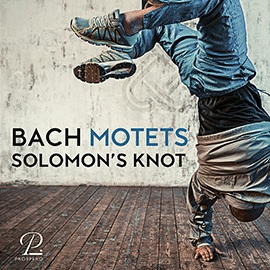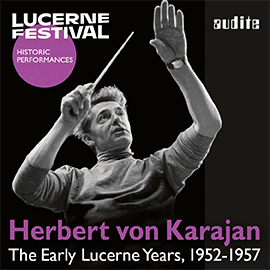Der Tenor Cyrille Dubois hat ein Programm zusammengestellt, das den Schwerpunkt auf Raritäten legt und für seine Stimme, die eines Tenore de Grazia, bestens geeignet ist. Doch Dubois hat nicht nur eine schöne Stimme, seine im vorderen Teil des Mundes angelegte Phrasierung ist klar, frei von allem Näseln und extrem textverständlich. Das erlaubt ihm ein ebenso vorbildliches Gestalten, denn er hat offenbar die Charaktere, die er nur in kurzen Arien zu singen hat, verstanden und kann ihre Gefühlsregungen sehr gut wiedergeben, gut und glaubhaft. Die dynamischen und farblichen Mittel, die ihm dabei zur Verfügung stehen, erlauben ihm, ohne jegliches Forcieren zu singen, natürlich und spontan.
Die Arie des Smith aus La Jolie de Fille de Perth mag Juan Diego Florez etwas geschmeidiger singen, mit einer leicht besser kontrollierten Tongebung, aber wie Dubois seine Stimme in leichter Erregung zittern lässt, wie er die dramatische Geste formuliert, das ist schon großartig.
Wo andere in der Cavatina aus Raymond von Ambroise Thomas larmoyant singen, bringt Dubois die richtigen Gefühle ins Spiel und singt dabei tadellos, mit stupender Beweglichkeit.
Stimmlicher Glanz, ganz am Schönheitsideal französischen Operngesangs orientiert, fehlt auch nicht, so z. B in Ah, mes amis aus La Fille du Régiment. Gewiss begeistern Dubois’ kräftige, glatt attackierten hohen Töne, die leichte und unverspannte Höhe, aber gerade so sehr bewundern wir seine Verzierungskunst, seine feine Phrasierungen, die in den Gesang einen unwiderstehlichen Zauber bringen und seine spontane Art, dieser Arie über die Virtuosität hinaus auch dramaturgisch Sinn zu geben.
Bei all dem wird Dubois bestens unterstützt von Orchestre National de Lille unter Pierre Dumoussaud.
The tenor Cyrille Dubois has put together a program that focuses on rarities and is ideally suited to his voice, that of a tenore de grazia. But Dubois not only has a beautiful voice, his front-of-mouth phrasing is clear, free of all nasal sounds and textually perfectly intelligible. This allows him an equally exemplary shaping, for he has obviously understood the characters he has to sing only in short arias and can render their emotions very well, well and believably. The dynamic and color means at his disposal allow him to sing without any forcing, in a most natural and spontaneous way.
Juan Diego Florez may sing Smith’s aria from La Jolie de Fille de Perth a bit more smoothly, with a slightly better controlled intonation, but the way Dubois lets his voice tremble in slight agitation, the way he formulates the dramatic gesture, is quite magnificent.
Where others sing larmoyantly in the Cavatina from Raymond by Ambroise Thomas, Dubois brings the right emotions into play and sings flawlessly, with stupendous agility.
Vocal brilliance, completely oriented to the ideal of beauty in French opera singing, is also not lacking, for example in Ah, mes amis from La Fille du Régiment. Certainly Dubois’ powerful, smoothly attacked, light and unstressed high notes are inspiring, but we admire just as much his art of ornamentation, his fine phrasing, which brings an irresistible magic to the singing, and his spontaneous way of giving this aria dramaturgical meaning beyond virtuosity.
In all this, Dubois is superbly supported by Orchestre National de Lille under Pierre Dumoussaud.




















